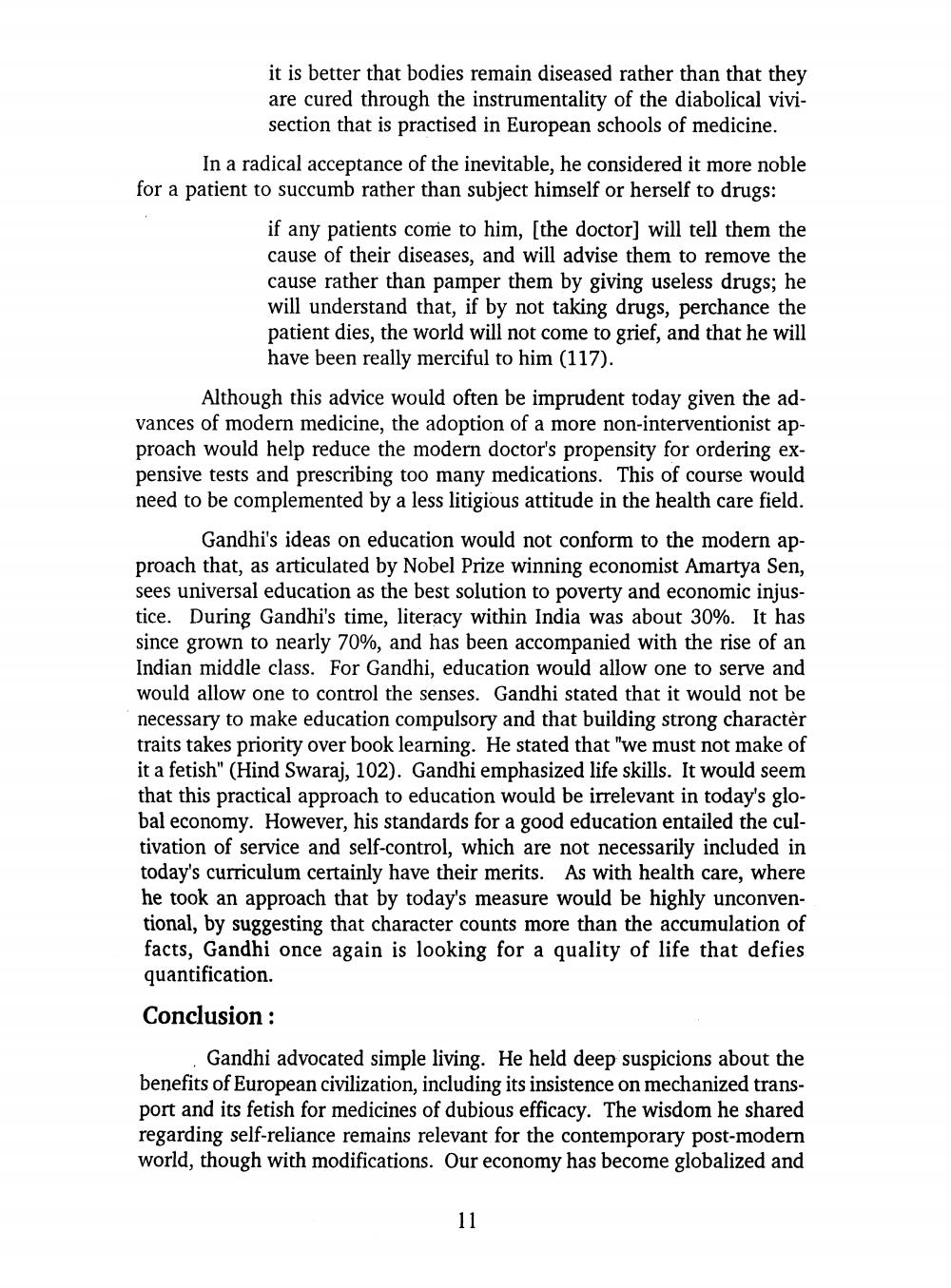________________
it is better that bodies remain diseased rather than that they are cured through the instrumentality of the diabolical vivi
section that is practised in European schools of medicine. In a radical acceptance of the inevitable, he considered it more noble for a patient to succumb rather than subject himself or herself to drugs:
if any patients come to him, [the doctor) will tell them the cause of their diseases, and will advise them to remove the cause rather than pamper them by giving useless drugs; he will understand that, if by not taking drugs, perchance the patient dies, the world will not come to grief, and that he will have been really merciful to him (117).
Although this advice would often be imprudent today given the advances of modern medicine, the adoption of a more non-interventionist approach would help reduce the modern doctor's propensity for ordering expensive tests and prescribing too many medications. This of course would need to be complemented by a less litigious attitude in the health care field.
Gandhi's ideas on education would not conform to the modern approach that, as articulated by Nobel Prize winning economist Amartya Sen, sees universal education as the best solution to poverty and economic injustice. During Gandhi's time, literacy within India was about 30%. It has since grown to nearly 70%, and has been accompanied with the rise of an Indian middle class. For Gandhi, education would allow one to serve and would allow one to control the senses. Gandhi stated that it would not be necessary to make education compulsory and that building strong character traits takes priority over book learning. He stated that "we must not make of it a fetish" (Hind Swaraj, 102). Gandhi emphasized life skills. It would seem that this practical approach to education would be irrelevant in today's global economy. However, his standards for a good education entailed the cultivation of service and self-control, which are not necessarily included in today's curriculum certainly have their merits. As with health care, where he took an approach that by today's measure would be highly unconventional, by suggesting that character counts more than the accumulation of facts, Gandhi once again is looking for a quality of life that defies quantification.
Conclusion:
Gandhi advocated simple living. He held deep suspicions about the benefits of European civilization, including its insistence on mechanized transport and its fetish for medicines of dubious efficacy. The wisdom he shared regarding self-reliance remains relevant for the contemporary post-modern world, though with modifications. Our economy has become globalized and
11




